Soil-to-sourdough traceability is key focus for farm bakery
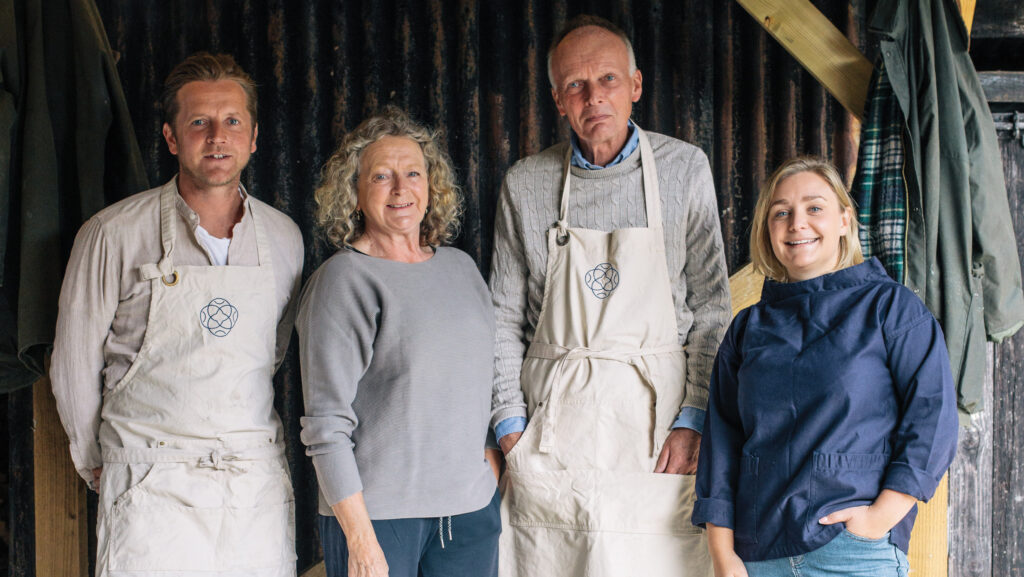 Emily Aitchison with Alexander and his parents Caroline and Robin © Katherine Mager
Emily Aitchison with Alexander and his parents Caroline and Robin © Katherine Mager A Suffolk couple who began baking loaves in a garden potting shed have spent three years reshaping their family’s 110ha farm, creating a fully traceable soil-to-sourdough system that now supplies their newly opened bakery in Woodbridge.
Emily and Alexander Aitchison began baking in 2022 in a converted shed beside their kitchen garden.
As demand grew, they took on Acre Farm, their family farm near Framlingham, where the arable fields produce wheat, barley and herbal leys – forming part of their aim to reconnect bread with the soil it comes from.
See also: Farming education charity takes livestock project nationwide
The couple’s heritage and skill set was the perfect combination to create the business.
Emily says: “My farming lineage stretches back to 1640, and I often reflect on the challenges, innovations, and resilience of the 14 generations who came before me.”
Meanwhile, Alexander, a chef for 15 years, was able to focus on food ingredients and techniques.
Together, they began growing Miller’s Choice wheat using a “soil- and nature-focused approach”. They describe their work as an attempt to return food production to the land and community around it.
Circular farming system
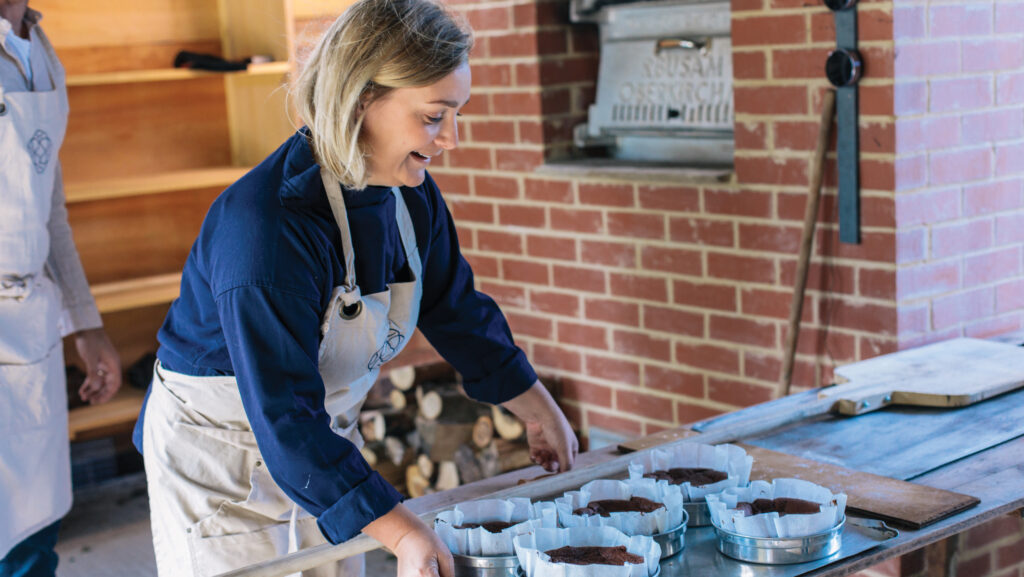
Emily Aitchison © Katherine Mager
From the beginning, the Aitchisons set out to create a circular farming system, which means growing the wheat, milling the flour and baking the bread on the same farm.
They have been working on this for three years, but Emily admits it has been challenging.
Milling on the farm allows the couple to trace every bag of flour directly back to the soil it was grown in.
“Using a traditional wooden German stone mill, we carefully grind our home-grown grains in small batches, preserving the full flavour, texture, and nutrition of the whole grain,” says Emily.
The farm also grows grain for Wildfarmed, the regenerative grain network. “By supplying our grains to Wildfarmed, we help support a food system that values quality and ecological farming.”
Soil to sourdough
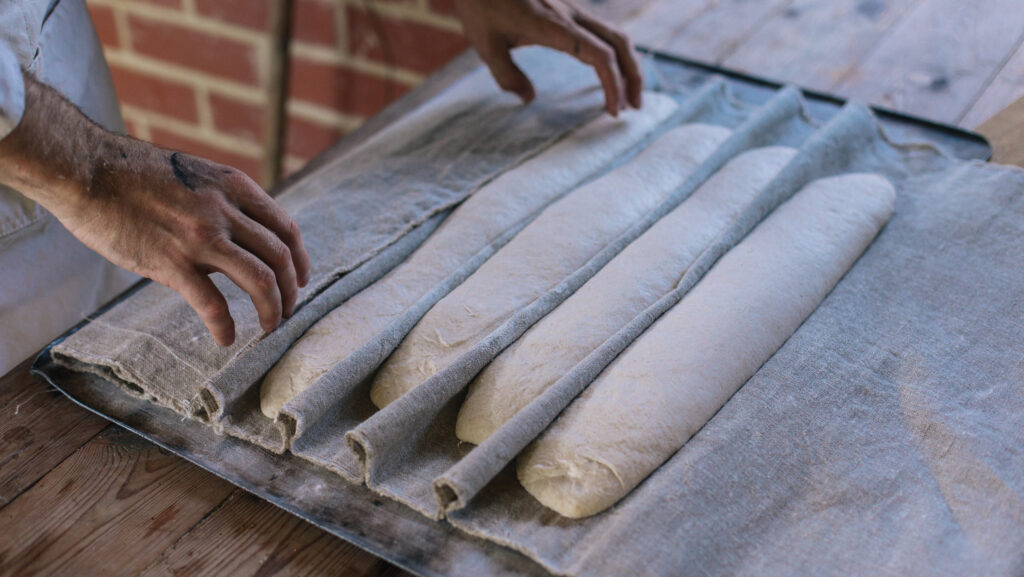
© Katherine Mager
With a growing consumer appetite for traceable ingredients, production at the bakery has increased significantly over the past few years. “We’re now getting through a tonne of flour a week,” Emily says.
The couple say the soil-to-sourdough ethos grew from reconnecting the farm to the food made from it.
“My dad farmed really well, but the lorries would come and go, and we wouldn’t actually eat anything that we produced ourselves, which was quite a strange concept to me,” says Emily.
“The soil-to-sourdough concept was actually like the connection to food again and thinking about working all the way back to the farm rather than always just being the farmer,” she adds.
Customer care
Emily and Alexander want the bakery and farm to thrive together, without compromising on quality or traceability.
“We want it to grow in tandem, but we want to be able to sustain the farm and ensure the produce stays traceable,” Emily says. Sustainability must extend beyond the fields.
“It’s sustainability not only for the soil, but for the whole aspect of farming and across the whole business,” she adds.
The sourdough process takes more than 24 hours from start to finish, with each loaf fermented, then baked by hand.
“Our bread is made with just three simple ingredients: flour, water, and salt, plus a fourth essential element – time.”
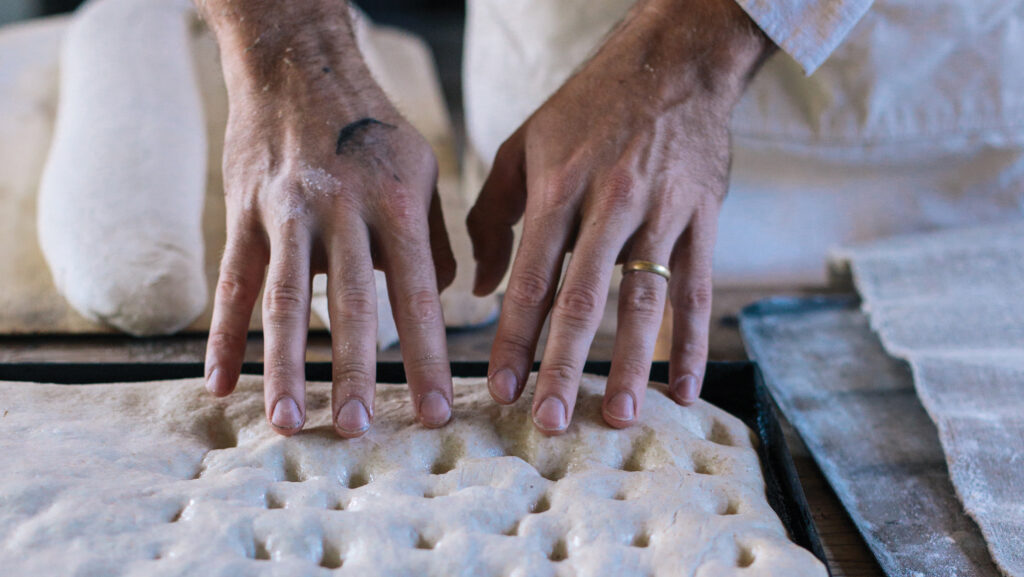
© Katherine Mager
The bakery has established a loyal customer base. “Over the past three years, we’ve built a local community, selling bread within a five-mile radius and delivering directly to customers’ homes,” says Emily.
That support helped fuel their first high-street outlet – the Woodbridge bakery – which opened on 15 October this year and has been well-received. “It’s been super busy – busier than we ever expected,” she says.
Early customers remain part of the weekly rounds. “We still have people that bought from us at the beginning, and customers that received our very first loaf… and we’ll continue to deliver for them because they supported us.”
For customers choosing local sourdough, the benefit is clear, say the couple: “Every loaf is a small investment in health, community and the planet.”
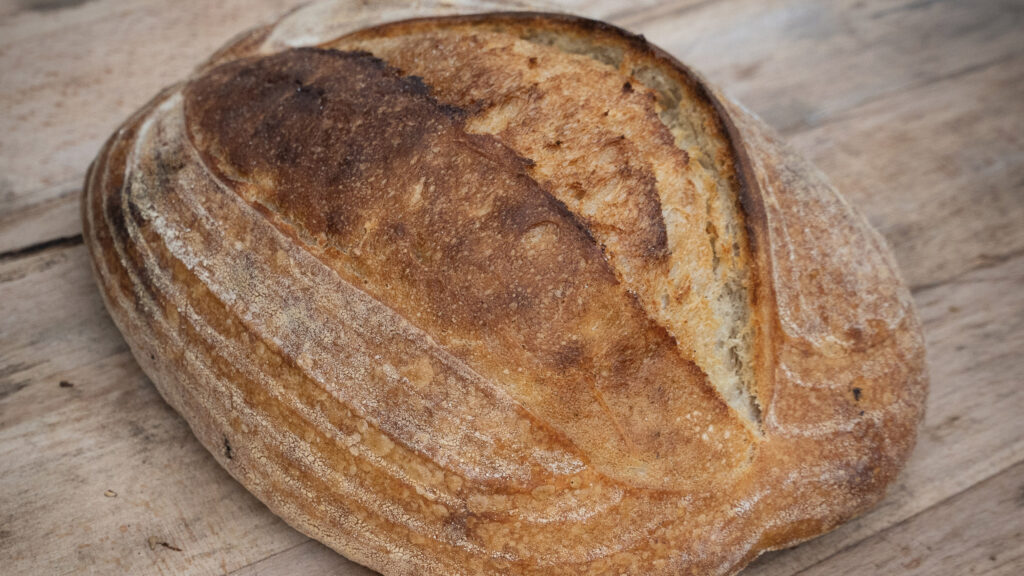
Acre Farm bakery bread © Katherine Mager
Agro-forestry project at Acre farm
Alongside opening the micro-bakery, and diversifying into glamping, a 10ha vineyard, and a cookery school, Acre Farm has launched a 10-ha agroforestry project with support from the Woodland Trust.
By early 2024, the farm had planted 2,500 trees and more than 1,500m of hedgerows. Rows now alternate between beetle banks and pollen mixes to support predatory and pollinating insects.
Emily’s brother, Tom McVeigh, who manages the farm, explains:
“In each row, alternating every 24m, is a beetle bank… and then pollen mixes… and then each row has agroforestry.
“So, in all the beetle banks are hazelnut trees, and in all the pollen mixes are walnut trees.”
Breaking up fields with varied planting is a strategy Tom says he borrowed from continental agriculture.
“One of the things that I remember seeing when I was flying over Eastern Europe was that they break up all of their crops like a fire break.
“When you have 50 acres of one thing and you get a disease, it just goes across the whole 50 acres,” he says.
At the core of the project’s approach is a genuine care for the entire process, says Emily. It is about traceability and working with farmers who are equally committed to responsible practices.
“You end up trusting them to make the right decisions,” she says.
